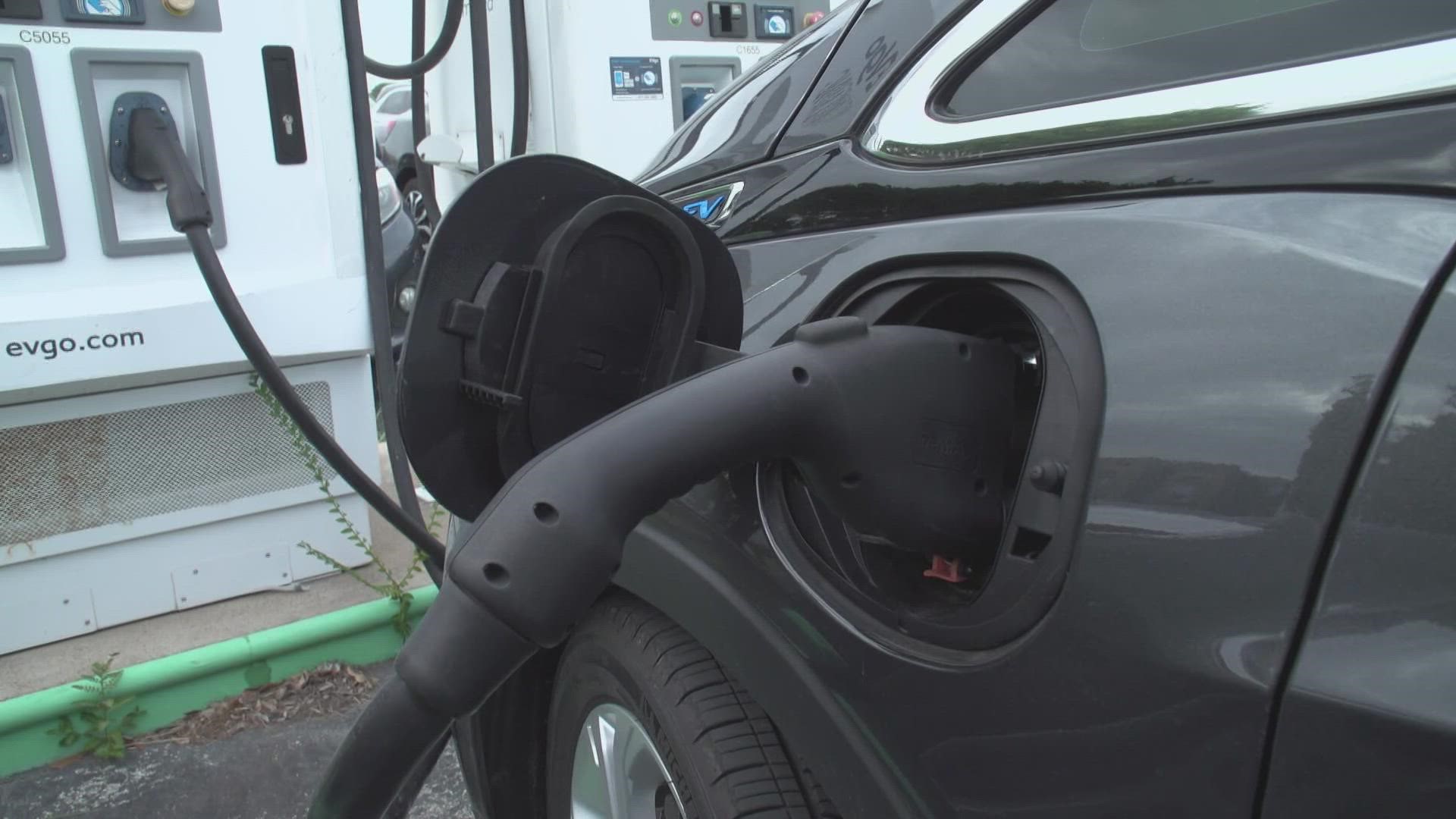DALLAS — Cars, SUVs and pickups are a major source of greenhouse gas emissions, according to the Department of Transportation.
President Joe Biden has promoted a $5 billion charging network for electric cars, funded by the bipartisan infrastructure law, as a critical step in the fight against climate change.
Right now, the country has about 100,000 chargers. The plan is for 500,000 chargers by 2030.
We know car companies are falling all over themselves to let us know they're making electric cars. But is the charging technology ready? And is $5 billion enough for a robust charging network?
First, let's talk about technology.
Tom "Smitty" Smith is a long-time advocate of a statewide charging network in Texas.
“We’re at a point now where the charging infrastructure is at the mass adoption stage. Many other nations,” said Tom “Smitty” Smith, executive director of TxETRA, which advocates for a statewide charging network in Texas.
“California and the Northeast have really gotten after installing charging infrastructure around their states. And it's now widely available and relatively inexpensive to install,” he added.
As a technology, charging stations are well beyond a concept on the back of a napkin. They're an established business. And growing fast. A new report, from Market Research Engine, anticipates the global charging station market will be worth $30 billion by 2024.
So, the technology is there, but in Texas there just isn't enough of it. In 2020 we took a 20-hour electric car road trip and sometimes we had a hard time finding a fast-charging station outside of urban areas.
For example, across North Texas, a larger city like Dallas has 424 plugs, Fort Worth 209 and Plano 135. But many smaller communities have none, according to data from the Department of Energy and the North Central Texas Council of Governments. You can also see plug-in locations, coast-to-coast, using a website called PlugShare.
The trip underscored the need for a far more comprehensive network, with many more stations. And that takes money.
Five billion dollars of government spending, over five years sounds like a lot of money. Enough to build three Jerry Worlds. And Texas will get more of it than any other state -- $408 million.
“The reason we're taking this step is we have to accelerate the progress of that EV revolution, and we have to make sure that more of it is made in America,” Secretary of Transportation Pete Buttigieg said on WFAA's Inside Texas Politics.
Here's why government money is important to accelerating a plan like this. Think about building a new neighborhood. First you have to put in infrastructure; things like roads, sewer and stoplights. After that, then you can build houses.
So, this $5 billion will go toward building out infrastructure that makes it possible for private companies to build more charging stations along major highways. That's what's happening in Europe where giant oil companies like BP, Shell and Total now own their own charging networks.
“At that point, you're in in the Katie-bar-the-door situation where you've gone far enough on the curve of adaptation to suddenly just have to get out of the way,” Smitty said.
So, we know the cars are coming. But, is the technology ready?
Yes, charging stations are a proven commodity.
And can $5 billion kickstart the construction of a more robust charging network?
It's impossible to say how many stations will eventually be built but putting that kind of money toward vehicle charging infrastructure does set the stage for a major expansion of where all these electric cars of the future can be plugged in.

